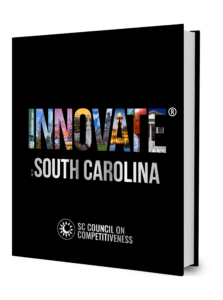Located in Graniteville, South Carolina, just off Interstate 20, Rolls-Royce’s mtu Aiken plant stands as a beacon of advanced manufacturing, workforce development, community commitment and clean energy leadership. Since opening its doors in 2010, the facility has grown from a promising assembly plant to a cornerstone of innovation, producing and remanufacturing engines that power industries across the globe – from mining and defense to power generation and oil & gas.
With more than 395,000 square feet of manufacturing and research space and more than 400 employees, the Rolls-Royce plant has been the site of continuous innovation, investment, and expansion. What began with the production of two mtu engine series has grown to include the assembly of governmental engines, the machining of parts, and even the production of energy through its solar field and micro grid. With an onsite Research and Development Center, plus a Remanufacturing and Overhaul Center, the Aiken campus covers the full lifecycle of the mtu engines it produces.
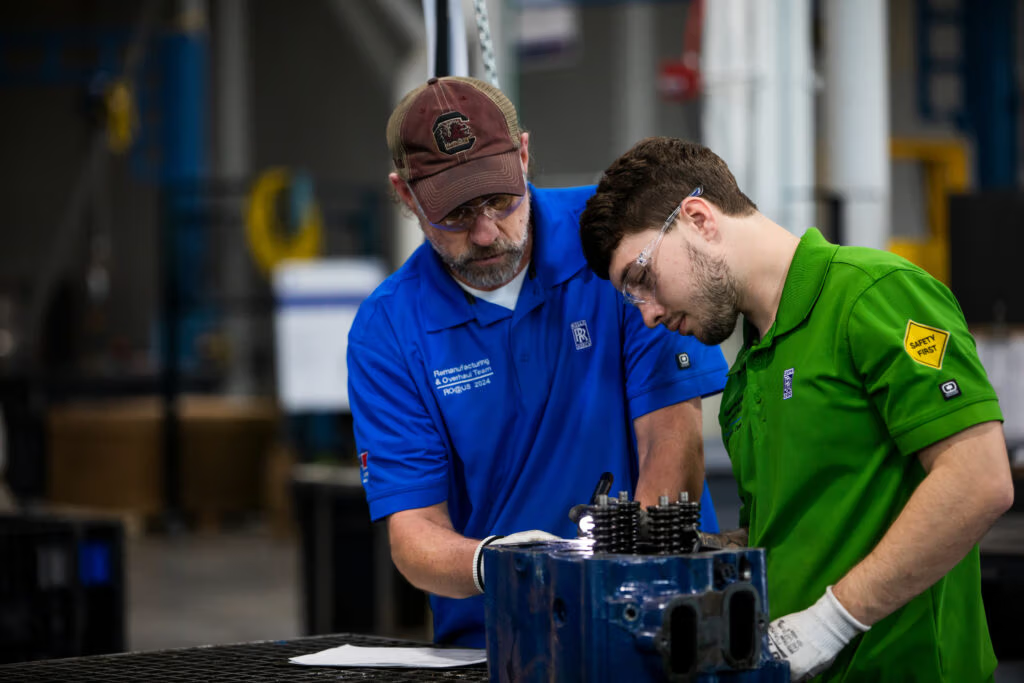
Dedicated to Clean Energy Technology
Beyond engine production, Rolls-Royce is championing sustainability through renewable energy and decarbonization at its Aiken site. In 2017, the facility invested $1.9 million to install a seven-acre solar field equipped with over 4,200 solar panels that feeds directly into the local power grid, capable of generating up to a megawatt of electricity – enough to power 500 homes on a sunny day. This project served both as a milestone in clean energy adoption and a step toward reducing the plant’s carbon footprint.
In 2020, its 10th anniversary year in Aiken, Rolls-Royce took things a step further by adding a solar canopy over its parking lot as part of a comprehensive microgrid solution. The 1-megawatt microgrid combines solar power, battery storage and a backup generator, capable of powering the site’s entire administration building independently from the main grid. This not only reduces the plant’s environmental impact but also serves as a real-world demonstration of Rolls-Royce’s clean energy technologies.
The plant is also supporting the advancing use of sustainable fuels such as hydrotreated vegetable oil (HVO), enabling its mtu Series 2000 and 4000 engines to operate with significantly lower lifecycle emissions.
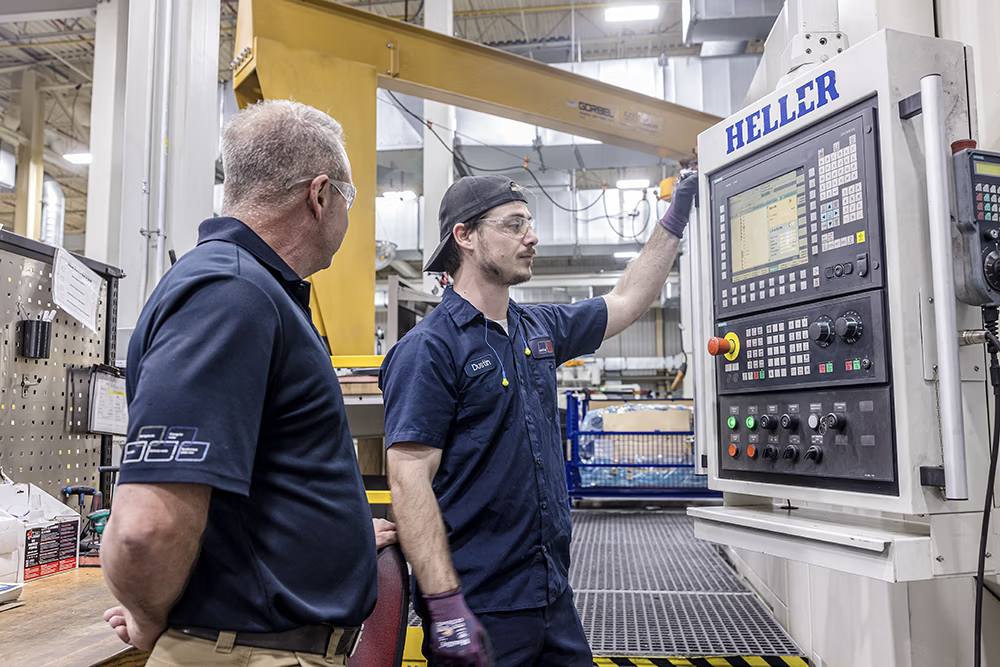
15 Years of Continuous Investment
The Aiken facility began its journey in 2010 when production of mtu Series 2000 and 4000 engines was relocated from Michigan to South Carolina. But what started off as an assembly plant for two product lines quickly began to expand in size and scope.
After getting assembly operations up and running, the plant brought machining operations online the next year, allowing the facility to machine its own components onsite, making it more self-sufficient and efficient. A year later, a $40 million investment laid the groundwork for a state-of-the-art Research & Development Center, which opened in 2013 with two engine test cells capable of conducting sophisticated emissions calibration and certification testing. By the end of 2014, this number had doubled to four test cells, further increasing the facility’s engine validation capabilities.
Additional investments included a $22.5 million expansion in 2013 to double development capacity, plus the addition of assembly and overhaul capability for the mtu Series 883 engines used in governmental applications. Later, the addition of marine engine testing in 2015 diversified the plant’s capabilities even further, including the ability to supply passenger ships, ferries, tugboats, offshore vessels and U.S. Navy frigates.
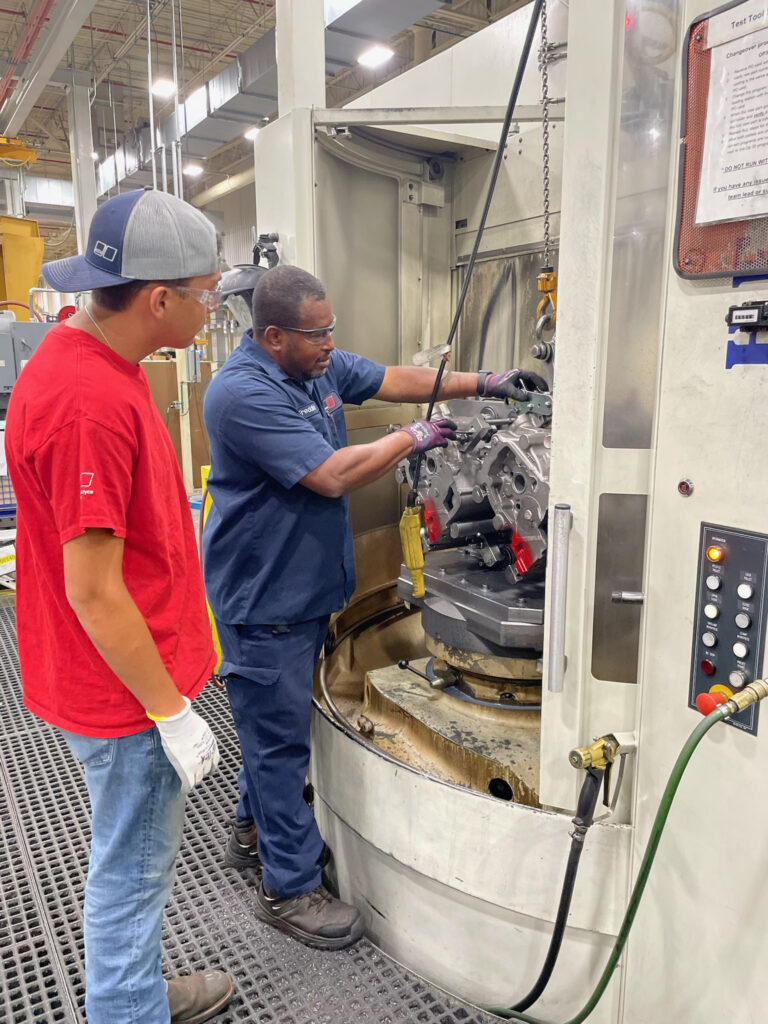
In 2019, the Aiken plant was recognized by the South Carolina Manufacturing Conference & Expo for its innovative use of artificial intelligence processes to predict and address product quality. The facility leverages predictive analytics to foresee potential engine failures, giving engineers the opportunity to develop algorithms to identify early signs of issues, allowing for timely interventions that minimize issues.
In 2024, a 69,000-square-foot Remanufacturing and Overhaul Center opened on-site, where used engines and parts are returned to like-new condition. By extending the lifecycle of its products, Rolls-Royce is conserving materials, reducing waste, and minimizing the carbon footprint associated with new manufacturing. The Center also allows for streamlined logistics, improved turnaround times, and enhanced quality control.
Also in 2024, the plant began integrating advanced robotics into its manufacturing processes. Central to this effort is the FANUCR-2000 iC/125L, a six-axis robotic arm designed to automate the precise handling and inspection of cylinder heads during CNC machining. With impressive payload capacity and reach, the system seamlessly moves raw castings and machined components within a self-contained work cell. The robotic system not only unloads finished components but also swaps worn tooling for replacement through a sister tooling system – quickly and precisely executing a complex cycle with minimal human intervention. The result is increased productivity, optimized uptime, and enhanced quality control, all hallmarks of the plant’s forward-thinking manufacturing philosophy. A second identical work cell is planned to launch in 2026.
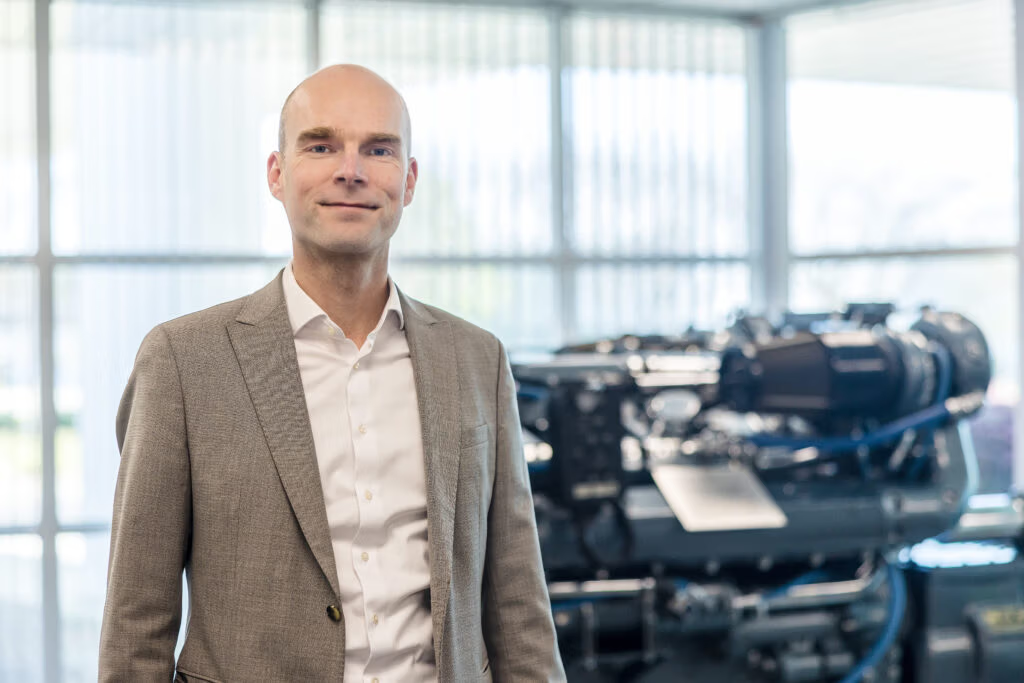
Commitment to Local Skills
A key pillar of the company’s success in Aiken is its award-winning Apprenticeship Program, launched in 2012. Recognizing that future growth of the plant hinged on a skilled local workforce, the facility forged partnerships with Aiken County high schools and Aiken Technical College to create a vocational training pipeline modeled after the German dual-education system to help cultivate the next generation of skilled manufacturing professionals.
Beginning in the 9th grade and 10th grade, participating students are introduced to the program through plant tours and presentations. Next, promising candidates are selected via an interview assessment process. Through 11th and 12th grades, students split their time between school, career center training, and real-world experience working at the Aiken plant. Successful graduates earn certifications recognized by both the U.S. Department of Labor and Apprenticeship Carolina.
The program has received national acclaim, including recognition by The Wall Street Journal and Dan Rather Reports, and has won prestigious accolades such as the Carolina Careers Governor’s Award – Private Sector Champion of the Year, 2013 – and the South Carolina Chamber of Commerce Workforce Innovator Award in 2016. More than 70 students have completed the program, several of whom have gone on to further their career with the company in full-time roles.
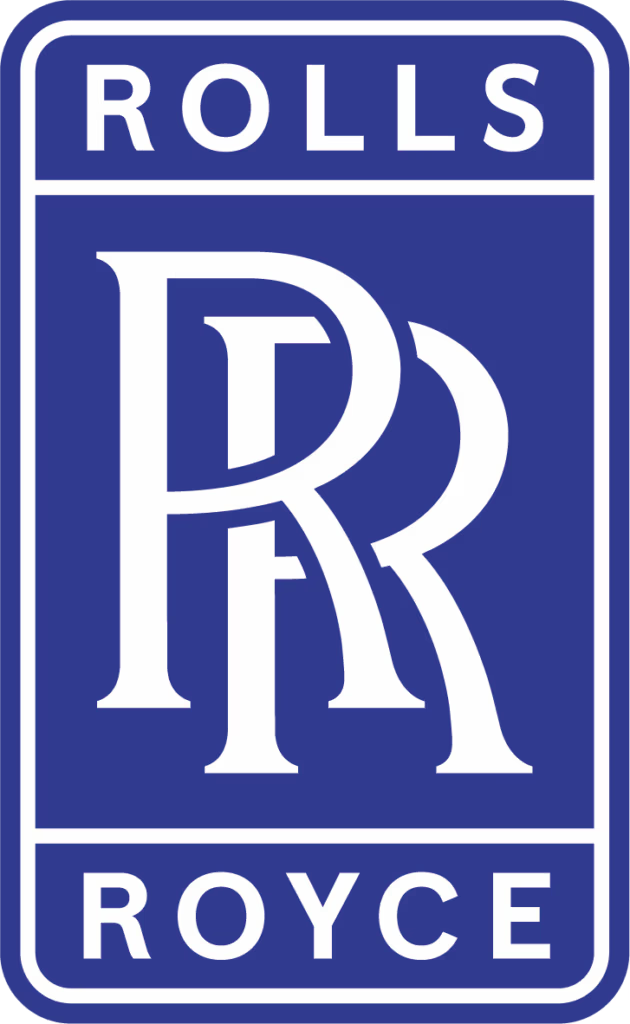
Long Term Vision
From its inception to its current role as a multifaceted manufacturing and research hub, the mtu Aiken facility has consistently evolved. It exemplifies an enduring vision supported by dedicated growth, community commitment and advanced engineering applications, all with a focus on safety.
“Here in Aiken, we don’t just build engines, we build the future,” says Philipp Steinle, Vice President of Operations. “Our commitment to continuous improvement ensures that every investment we make, every innovation we adopt, and every teammate we train brings us one step closer to redefining what’s possible in advanced manufacturing.”
Based in South Carolina but serving industries across the globe, Rolls-Royce’s Aiken facility manufactures power while also driving progress, enhancing its community through education, and advancing international standards through excellence and innovation.

